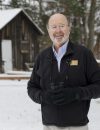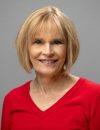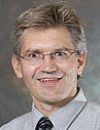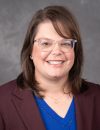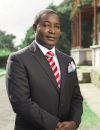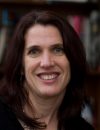UW-Madison announced on Wednesday a $20 million donation for a new academic building that will help clear the way for the demolition of the Humanities Building.
UW In The News
-
Influencers aren’t going anywhere. So what does that mean for today’s teens?
“Media influence on young people is something that’s been known for years,” Ellen Selkie, an adolescent medicine specialist and researcher at the University of Wisconsin-Madison, told Mashable. “But I think the thing with influencers that is additional is that there is a development of a para-social relationship with the influencer.”
-
Should young children be made to wear face masks?
But other experts are skeptical of how much of an impediment masks really are. “Faces aren’t necessarily the only or the most important cue to someone else’s emotions,” says Ashley Ruba, a postdoctoral researcher at the University of Wisconsin-Madison’s Child Emotion Lab. There are other vital signals too, she says, “things like tone of voice, body posture, and overall social situation”.
-
We Need to Ground Truth Assumptions about Gene Therapy
Emily Howell, a science communication expert at the University of Wisconsin–Madison, says that the trust part happens when researchers meet people where they are by asking about their concerns, their hopes and their fears. Howell, who studies how to communicate controversial topics such as fracking and gene editing, says starting with emotions and values rather than with facts and figures can help to foster trust. People tend to trust someone when that person not only is competent but also seems to care about the same things as they do, Howell says.
-
Ancient-DNA Researchers Set Ethics Guidelines for Their Work
“I will say that it’s encouraging to see a group of scientists like this say we have talked about this standard of behavior and we’re willing to agree to it,” said John Hawks, a paleoanthropologist at the University of Wisconsin-Madison, who was not involved with the paper. “It’s a step forward for them to say at least we’re going to follow the law.
-
Yes, There Has Been Progress on Climate. No, It’s Not Nearly Enough.
“We know there are these big tipping points in the climate system, and once we get past them, it’s too late to go back,” said Andrea Dutton, a climate scientist at University of Wisconsin-Madison who co-authored a study finding that a 3 degree trajectory could lead to an abrupt jump in the rate of Antarctic melt as early as 2060.
-
Will eliminating quantitative popularity on Instagram actually make it safe for kids?
Megan Moreno, a principal investigator of the Social Media and Adolescent Health Research Team at the Department of Pediatrics at the University of Wisconsin-Madison, told Mashable that there’s space to try out what we can to make social media safer. While she thinks the idea of fully eliminating quantitative popularity is “an interesting idea,” she is “not hugely optimistic that it will make a gigantic difference.” That’s because the idea of likes is so engrained in our society already, that the concept will be there if it’s turned off or not. And, she adds, popularity isn’t completely numerical.
-
The Pay Gap for Women Starts With a Responsibility Gap
In fact, our research and research by others shows conclusively that women do ask for higher salaries as often as men do—sometimes more. They’re just not getting the same results. A 2018 study from the University of Wisconsin examined the propensity to ask for salary bumps among 4,600 employees across 800 Australian workplaces and found no gender difference, but men who asked got raises 20% of the time compared with 15% of women.
-
Thousands of missed police killings prove we must address systemic bias in forensic science
Peter Neufeld is a co-founder of the Innocence Project. Keith Findley is a professor at the University of Wisconsin Law School. Dean Strang is a criminal defense lawyer and law professor at Loyola University Chicago. Findley and Strang are also co-founders of the Center for Integrity in Forensic Sciences.
A new study from the University of Washington concludes that, over nearly 40 years, medical examiners and coroners undercounted killings by U.S. police by more than half. During that time, these officials missed or covered up more than 17,000 police killings between 1980 and 2018.
-
VendRx sounds convenient. But it could pervert physician incentives.
In the years that followed, some patients continued to buy certain drugs from their doctors, and some pharmacists continued to compound medications. But, as regulation increased, the diverse pharmaceutical market began to consolidate. With that transition, said Lucas Richert, a historian of pharmacy at the University of Wisconsin-Madison, pharmacists began “moving away from this role of compounders, and moving into a role where they are offering pharmaceutical services in their own shops.”
-
‘Lurching Between Crisis and Complacency’: Was This Our Last Covid Surge?
“We’re in a shoulder season, where it’s cooler in the South than it is in the middle of the summer and it’s warmer in the North than it is in the middle of the winter,” said David O’Connor, a virologist at the University of Wisconsin-Madison.
-
HHMI devotes $2 billion to boost diversity in biomedical sciences
“It is a disservice to fund individuals to come into environments that continue to drive them away,” said Angela Byars-Winston, a professor at the University of Wisconsin School of Medicine and Public Health who led a 2019 National Academy of Science study on effective mentoring in STEM fields. “We know there are things institutions can do to change the environment instead of focusing on students who are not broken.”
-
Wisconsin GOP review of 2020 election beset by blunders from former Supreme Court Justice Michael Gableman
“I do think it’s harmful,” Barry C. Burden, director of the Elections Research Center at the University of Wisconsin at Madison, said of the review. “It’s obviously amateurish and uncoordinated and irresponsible and open-ended and partisan. The people who are leading the effort have already decided they think the election was fraudulent, or they’re distrustful of the outcome. It’s a violation of all the standards you’d use in a usual election audit or review the state might do.”
-
UW-Madison secures $20 million donation for new classroom building
-
Vaccine hesitant New Yorkers consider leaving the city as mandates take effect
“We can’t expect that medical systems who have earned the mistrust of many marginalized groups will now be trusted because of Covid. It doesn’t work that way,” said Tiffany Green, a population health scientist and economist at the University of Wisconsin-Madison.
-
As more colleges require COVID-19 vaccinations, one is finding success without mandate
Getting vaccinated on campus at the University of Wisconsin in Madison is relatively normal.
“I think is in the best interest of everyone, not just here on campus but in the larger Dane County community for students to be vaccinated,” said Sam Kuchta, a senior at the university.
-
Dorland v. Larson: On the Legal Disputes at the Heart of “Bad Art Friend”
The New York Times dropped jaws with a tea-spilling article detailing an ongoing six-year dispute between a white writer who donated a kidney and a writer of color who wrote a short story inspired by the donation. Dawn Dorland and Sonya Larson now find themselves deep into contentious litigation with no end in sight.
-
Why 2021’s college sophomores are the new freshman
With so many colleges going virtual last year, many sophomores are on campus for the first time. But it’s different — a lot still feel like freshman. Colleges set up programs to get them caught up.
-
UW-Madison chancellor headed to Northwestern in 2022
Blank became chancellor of UW-Madison in 2013. She has deep ties to Northwestern and the Chicago area, serving as a faculty member from 1989 to 1999 and directing the Joint Center for Poverty Research. She was married in Chicago and her daughter attended Northwestern as a student.
-
Wisconsin’s political divide has implications for 2022 and 2024 elections
Still, Wisconsin, a state whose people enjoy a reputation for embodying the concept of “Midwestern nice,” stands out. Mark Copelovitch, (Ken) Mayer’s University of Wisconsin colleague, argued that everything that has become commonplace at the national level, including the transformation and radicalization of the Republican Party, has been part of Wisconsin’s political experience for the last 10 years. “Wisconsin has been the canary in the coal mine,” he said.
-
Remote Workers Can Live Anywhere. These Cities (and Small Towns) Are Luring Them With Perks.
“I can see where this is going to end up going to people who were going to move to a community anyway,” said Tessa Conroy, an assistant professor at the University of Wisconsin-Madison who studies economic development. “Or maybe you do manage to attract someone. Is that really the ideal resident, someone who was paid?”
-
Wisconsin’s political divide has implications for 2022 and 2024 elections
“When you have 51 percent of the vote, it had been generally [accepted] that you don’t govern like you’ve got 95 percent of the vote,” said Kenneth Mayer, a political science professor at the University of Wisconsin at Madison. “In 2011, that norm was abandoned.”
-
A newspaper tries to make ends meet by asking for donations in honor of its reporters
Kathleen Bartzen Culver, director of the Center for Journalism Ethics at the University of Wisconsin, said she sees no immediate problem with the campaign but generally advocates for news organizations to take every opportunity to “pull back the curtain” and educate their audiences about the role ethics plays in their business decisions.
-
9-year-old raises money for diverse library books with lemonade stand
The presentation included statistics from the University of Wisconsin-Madison’s Cooperative Children’s Book Center, which found that there are more books with main characters that are white or animals than there are books with protagonists that are Black, Indigenous, or a person of color.
-
Flu shot side effect: Are reactions worse this year?
Nasia Safdar, the medical director for infection prevention at the University of Wisconsin Hospital: It really shouldn’t. Quadrivalent vaccines have been available and most of us have been getting those for years. There is a high dose flu vaccine that is recommended for people who are older, and the arm tenderness might be a little bit more and it takes a little bit longer to recover.
-
Who Was Emma Tenayuca? A Mexican American Champion of Workers’ Rights | Teen Vogue
Tenayuca’s drive to lead and organize union workers stemmed from her personal understanding of their plight. “It wasn’t by coincidence,” Marla Ramírez, assistant professor in the Department of History and Chican@ & Latin@ Studies Program at the University of Wisconsin-Madison, tells Teen Vogue. “She knew the people she was organizing. She grew up with them. She had similar experiences of discrimination, inequality, hunger, and poverty,” Ramírez explains. “She was fighting for herself when she was fighting for others too.”
-
Alcohol Is the Breast Cancer Risk No One Wants to Talk About
University of Wisconsin oncologist Noelle LoConte has long felt that the link doesn’t get enough attention—even among oncologists. She is the lead author of a 2017 statement on alcohol and cancer from the American Society of Clinical Oncology, which calls on these specialists to take the lead in addressing “excessive exposure to alcohol” through education, advocating for policy changes, and research.
-
School Mask Mandates Are Going to Court. Here’s What to Know
Suzanne Eckes, an education law professor at the University of Wisconsin-Madison’s School of Education, says that while cases specifically related to face masks in school are uncharted territory, courts have historically decided that parental rights do not trump a school’s ability to take steps to keep kids safe.
-
An American tragedy: 700,000 US COVID deaths despite widely available vaccines
“Heading into the winter months, we can significantly delay the next grim milestone if more people, especially those at high risk for severe illness, choose to get vaccinated,” said Ajay Sethi, an epidemiologist and associate professor of population health sciences at the University of Wisconsin-Madison.
-
Imbalance of power: Why low-wage, working women bear the brunt of anti-mask backlashes
Nancy Wong, a University of Wisconsin-Madison professor of consumer research and marketing, said the imbalance is magnified when employees are female because anger about mask mandates can trigger sexist bullying and harassment.
-
The South Pole just had its most severe cold season on record
Matthew Lazzara, an expert on the meteorology of Antarctica and scientist at the University of Wisconsin, monitored the South Pole temperatures in recent months from his office in Madison with awe. In an interview, he said it was around minus-100 degrees on numerous occasions. Over the years, he’s traveled to Antarctica many times to support his research.
- Newer stories
- Page 36 of 140
- Older stories
Featured Experts
Cecelia Klingele: Body-worn cameras by police
Madison Police Chief Shon Barnes is requesting that the city fund widespread use of body cameras for officers in the… More
Stanley Temple: Fall phenology
The days have finally started getting cooler and we all know winter awaits. Stanley Temple, an expert on birds, wildlife, endangered… More
Kathleen Glass: Food safety
Food is an integral part of Thanksgiving. And who doesn't love leftovers? But after how long should you leave those… More
Jonathan Temte: The seasonal flu shot
Family medicine professor Jonathan Temte is available to discuss this year's updated seasonal flu shot and flu prevention and control. More
Noelle LoConte: Pancreatic Cancer Awareness Month
Pancreatic cancer is one of the most difficult cancers to prevent, diagnose or treat. Earlier this month, music legend Quincy… More
Alvin Thomas: Movember and Men's Health Month
You might see more facial hair this month as Movember goes into full effect, drawing awareness toward men's health. Alvin… More
Dominique Brossard: Vaccine hesitancy
With a new administration poised to take power in January, a change in policy regarding vaccines may also be on the way.… More


